THE SOCIAL REALITY OF EUROPE AFTER THE CRISIS
About Policy Network
Policy Network is an international thinktank and research institute. Its network spans national borders across Europe and the wider world with the aim of promoting the best progressive thinking on the major social and economic challenges of the 21st century.
Our work is driven by a network of politicians, policymakers, business leaders, public service professionals, and academic researchers who work on long-term issues relating to public policy, political economy, social attitudes, governance and international affairs. This is complemented by the expertise and research excellence of Policy Networks international team.
A platform for research and ideas
- Promoting expert ideas and political analysis on the key economic, social and political challenges of our age.
- Disseminating research excellence and relevant knowledge to a wider public audience through interactive policy networks, including interdisciplinary and scholarly collaboration.
- Engaging and informing the public debate about the future of European and global progressive politics.
A network of leaders, policymakers and thinkers
- Building international policy communities comprising individuals and affiliate institutions.
- Providing meeting platforms where the politically active, and potential leaders of the future, can engage with each other across national borders and with the best thinkers who are sympathetic to their broad aims.
- Engaging in external collaboration with partners including higher education institutions, the private sector, thinktanks, charities, community organisations, and trade unions.
- Delivering an innovative events programme combining in-house seminars with large-scale public conferences designed to influence and contribute to key public debates.
www.policy-network.net
About the Foundation for European Progressive Studies (FEPS)
FEPS is the first progressive political foundation established at the European level. Created in 2007 and co-financed by the European parliament, it aims at establishing an intellectual crossroad between social democracy and the European project. It puts fresh thinking at the core of its action and serves as an instrument for pan-European intellectual and political reflection.
Acting as a platform for ideas, FEPS relies first and foremost on a network of members composed of more than 40 national political foundations and thinktanks from all over the EU. The foundation also closely collaborates with a number of international correspondents and partners in the world that share the ambition to foster research, promote debate and spread progressive thinking.
www.feps-europe.eu
THE SOCIAL REALITY OF EUROPE AFTER THE CRISIS
Trends, Challenges and Responses
Patrick Diamond, Roger Liddle and Daniel Sage
London New York
Published by Rowman & Littlefield International Ltd.
Unit A, Whitacre, 26-34 Stannary Street, London, SE11 4AB
www.rowmaninternational.com
Rowman & Littlefield International Ltd. is an affiliate of Rowman & Littlefield
4501 Forbes Boulevard, Suite 200, Lanham, Maryland 20706, USA
With additional offices in Boulder, New York, Toronto (Canada), and Plymouth (UK)
www.rowman.com
Copyright 2015 Policy Network
The right of Patrick Diamond, Roger Liddle and Daniel Sage to be identified as the authors of this work has been asserted by them in accordance with the Copyright, Designs and Patents Act 1988.
All rights reserved . No part of this book may be reproduced in any form or by any electronic or mechanical means, including information storage and retrieval systems, without written permission from the publisher, except by a reviewer who may quote passages in a review.
British Library Cataloguing in Publication Data
A catalogue record for this book is available from the British Library
ISBN: PB 978-1-78348-538-3
Library of Congress Control Number: 2015940889
ISBN 978-1-78348-538-3 (pbk. : alk. paper)
ISBN 978-1-78348-539-0 (electronic)

The paper used in this publication meets the minimum requirements of American National Standard for Information SciencesPermanence of Paper for Printed Library Materials, ANSI/NISO Z39.48-1992.
Printed in the United States of America
CONTENTS
ACKNOWLEDGEMENTS
This pamphlet would not have been possible without the generous support of the Foundation for European Progressive Studies (FEPS). In particular, we would like to thank Ernst Stetter and Ania Skrzypek, who provided intellectual inspiration as well as practical assistance. Solidar kindly hosted a conference in the European parliament at which the social situation in Europe was discussed with leading experts in the field. We would also like to thank our colleagues at Policy Network for their dedication and professionalism in preparing this report, especially Ben Dilks, Robert Philpot and Renaud Thillaye.
Patrick Diamond, Roger Liddle and Daniel Sage
INTRODUCTION
T he economic crisis that has unfolded since 2008 has had, and continues to have, a profound effect on the lives of Europes citizens. Economically, politically and socially, the crisis has led to fundamental changes in many EU member states.
This report seeks to examine the new social reality of post-crisis Europe. In essence it describes how a profound divergence of experience between north and south challenges previous assumptions that European integration would drive a seemingly automatic process of convergence. Altogether, we identify four separate dynamic forces that have the potential to reshape Europes social reality in the coming years. First, the most explicit effects of the crisis have been felt across economies and labour markets , with Europes relative economic performance analysed and compared in the first section. Second, there is much debate about the effects of the crisis on Europes poorest citizens, particularly in relation to poverty and inequality , the issues that dominate section two of the report. Third, the EU has set ambitious targets for progress in education, while the effects of the crisis on health have been much discussed; there are ongoing debates about the sustainability of existing systems of public service provision, specifically education and health . These challenges are assessed in the third part of the report. In the fourth section of the report, the political and cultural makeup of post-crisis Europe is examined, with unsettling implications for Europes political class.
The divergence this report describes has taken place against the backdrop of trends and developments already in train long before the crisis hit. The process of deindustrialisation and the associated decline of employment in manufacturing industry has been wrought by technological change, a global shift in economic power from west to east and rising consumer demands for services. These long-term, structural trends across most EU member states have contributed to the rise of more precarious work arrangements and the strengthening of insider and outsider divisions in labour markets. Moreover, the implementation of policies today associated with crisis austerity programmes such as benefit conditionality, employment activation, higher retirement ages and reductions in benefit entitlements are not new policies in European welfare states. They have been part of the reform landscape of Europe since the late 1990s. Such policies were pioneered before the eurozone crisis in countries such as Germany, Sweden and the UK, with new recruits such as Italy and Spain now following suit. This interplay between policy change and more fundamental, structural forces has influenced debates about the future of Europe since before the crisis, with calls for a new welfare state or social model for Europe, achieving their strongest political expression through the launch of the Lisbon agenda in 1999. As well as creating new challenges, the crisis has accentuated the impact of pre-existing trends, raising profound questions about the sustainability and success of the European model.

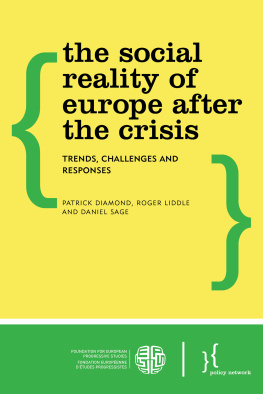




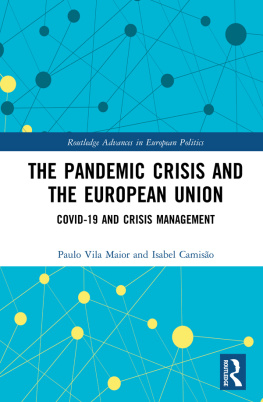
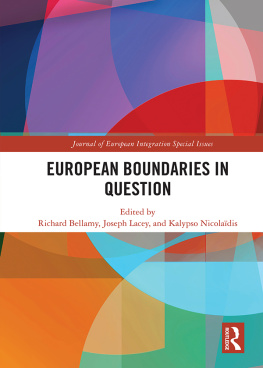
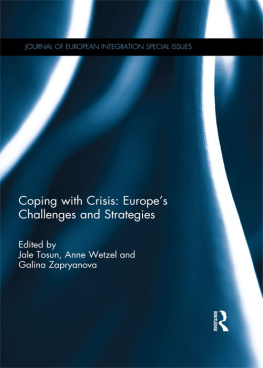
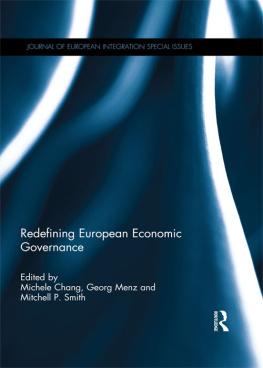
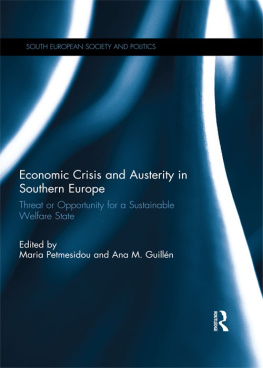
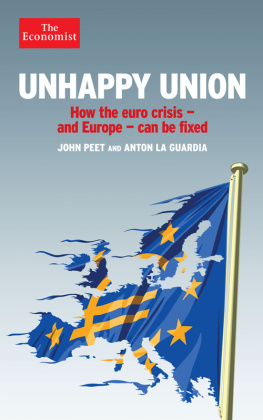
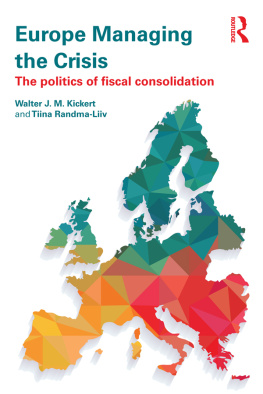
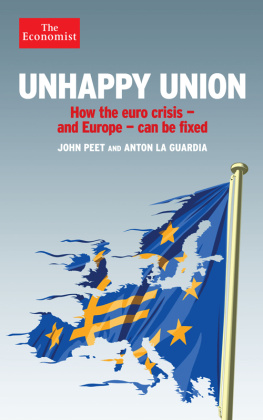



 The paper used in this publication meets the minimum requirements of American National Standard for Information SciencesPermanence of Paper for Printed Library Materials, ANSI/NISO Z39.48-1992.
The paper used in this publication meets the minimum requirements of American National Standard for Information SciencesPermanence of Paper for Printed Library Materials, ANSI/NISO Z39.48-1992.